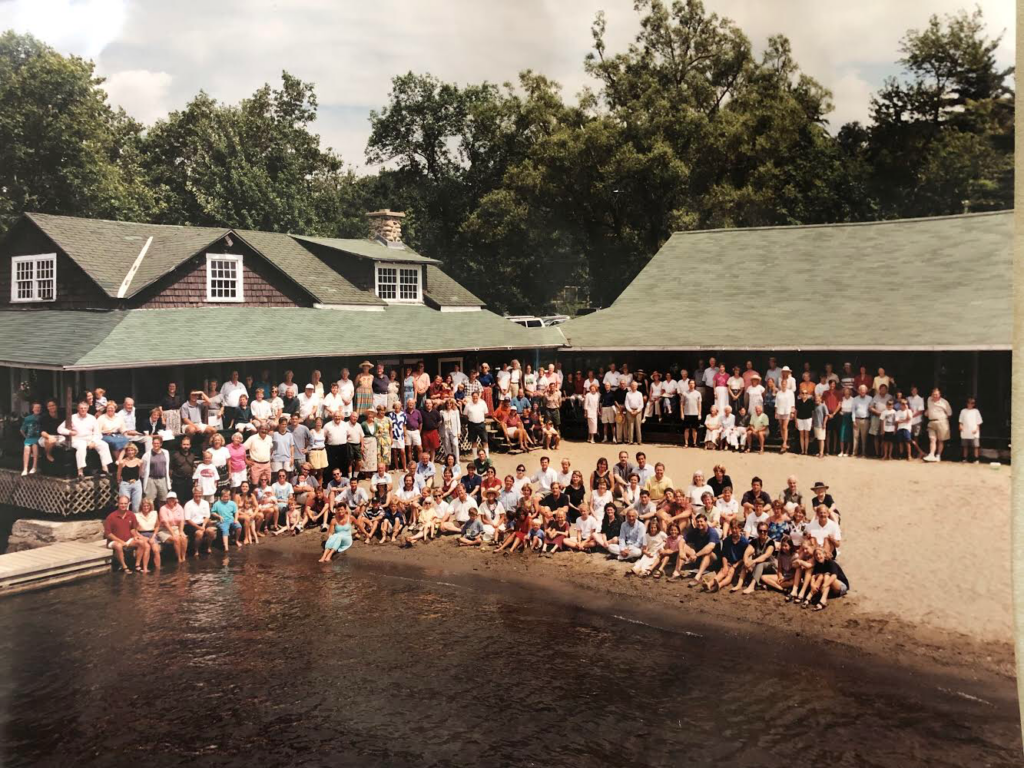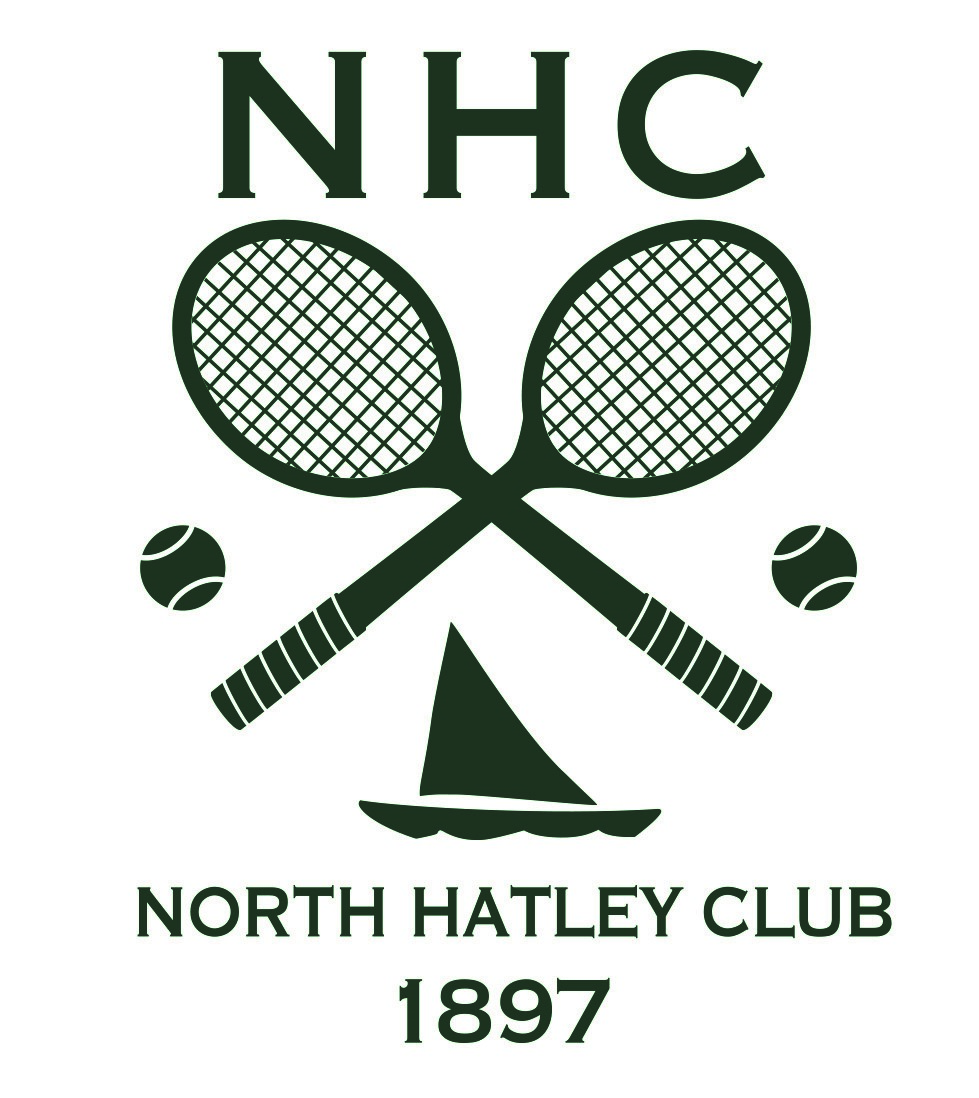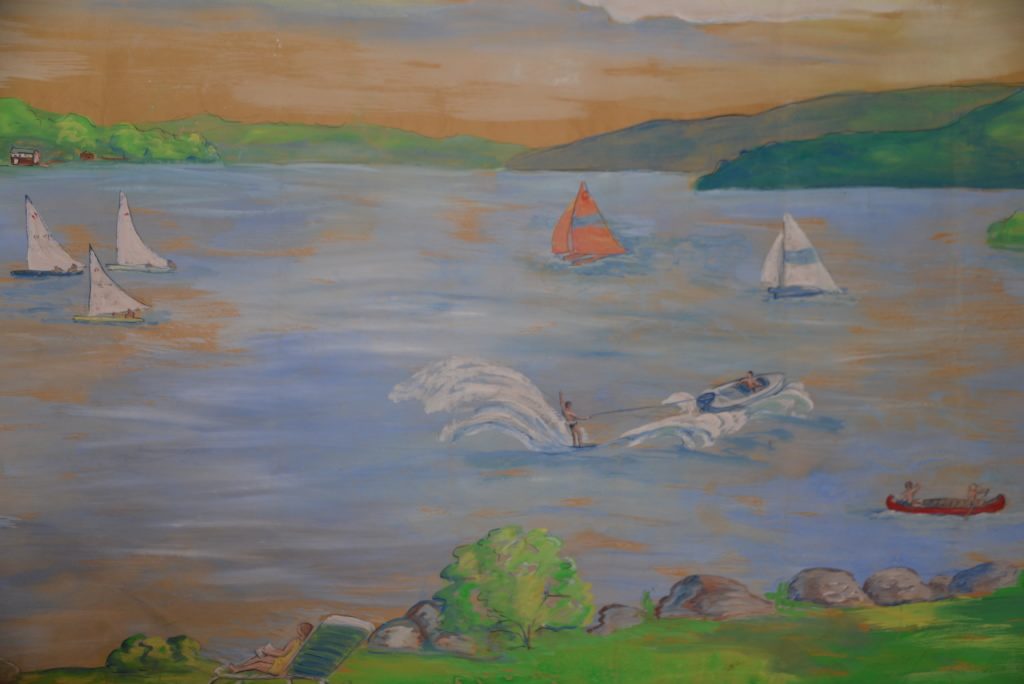
The North Hatley Club was established as The North Hatley Canoe Club in 1897. This followed the 1886 arrival in North Hatley of Dr. Powhatan Clarke from Virginia and soon thereafter several families from Baltimore (thus the name Baltimore Bay between Black Point and Blue Point on Lake Massawippi). Between 1886 and 1925, the Club included many families whose descendants remain members a century later [e.g., Brent (Dame), Wilcox, Hodges (Gosnell/Wilmer), Satterthwaite, Meagher, Bond (Edgar), Nairn (Griffin/Eaton), Haskell (Allen), Powel, Stebbins (Wilmer), Wylie, Jackson, Wardman, Ransom, Stevenson (White/Hargraeves), Kilby (Hickox), Blake, Bradley (Cameron) and Fletcher (Dunn/McCurdy)]. As of 2021, the club’s small membership comes from ten countries, five Canadian provinces and seventeen U.S. states.
Sailing
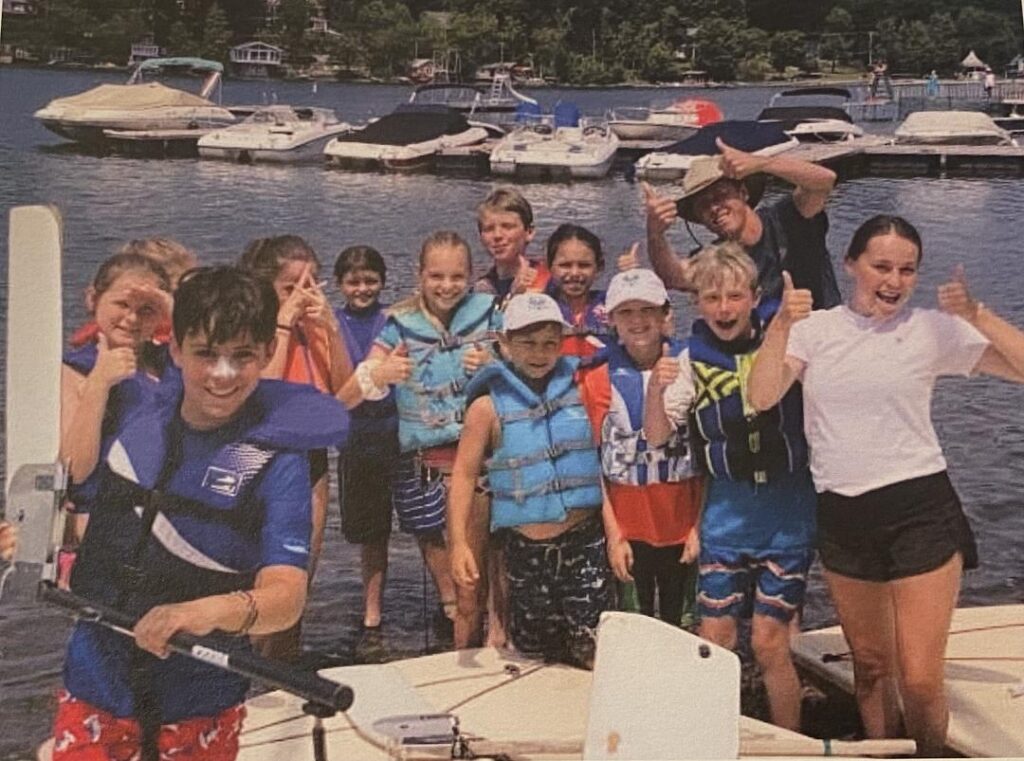
Tom Wilcox recalls: “The heyday of sailing at NHC in our lifetimes was in the late 50’s and early 60’s. The Club’s center of gravity was on the water. There were races every Saturday and Sunday all summer, with ‘novice’ races held on Wednesdays . … With twelve PCs, six Enterprises, and six Sailfish at any given race there could be more than 50 people on the water, not including those in the ‘Committee Boat.’ There would be at least that many watching from the shore, and there would be club-wide ‘teas’ at the end of the races, held at the south end of the dance hall porch.” The Next Gen photo above, taken in 2018, suggests that a sailing renaissance is afoot. Maybe the All Day Sail to Ripplecove will return!
Canoeing
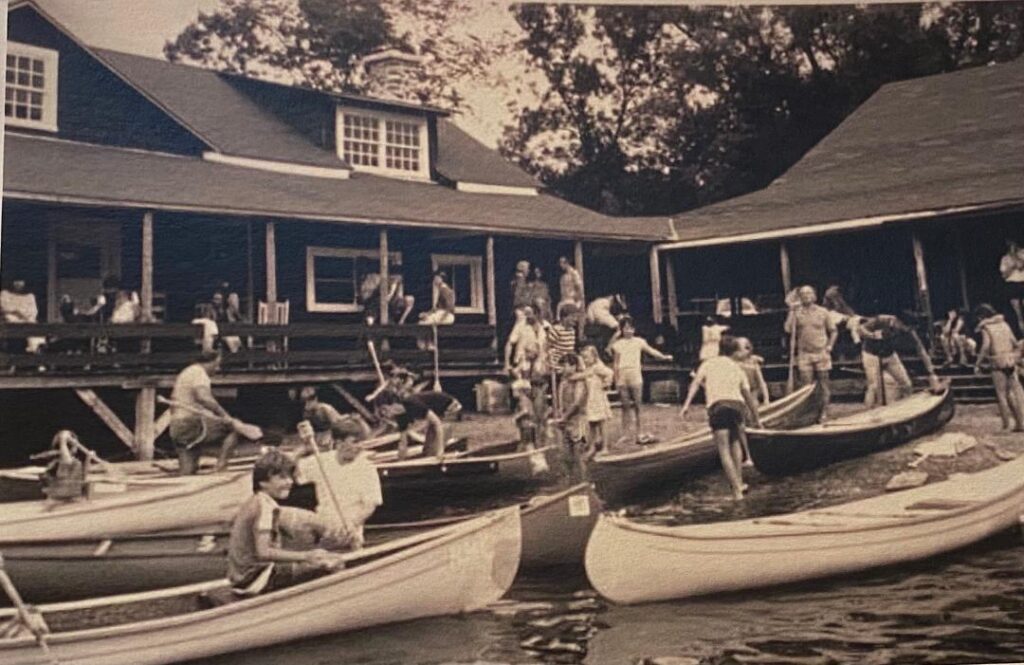
Canoeing at the North Hatley Club evokes special memories: Canoe handling and war canoes at the Regatta. Marge Ross taking young paddlers down the river, and presenting candies to them on the club beach afterwards. Or an early evening paddle. In 1961 Hamilton Fish Armstrong wrote, in Those Days, about canoeing on Lake Massawippi: “the glide of a canoe is the most soothing of all motions, and from the eddies of your paddle in smooth waters come … the most seductive of sounds.”
